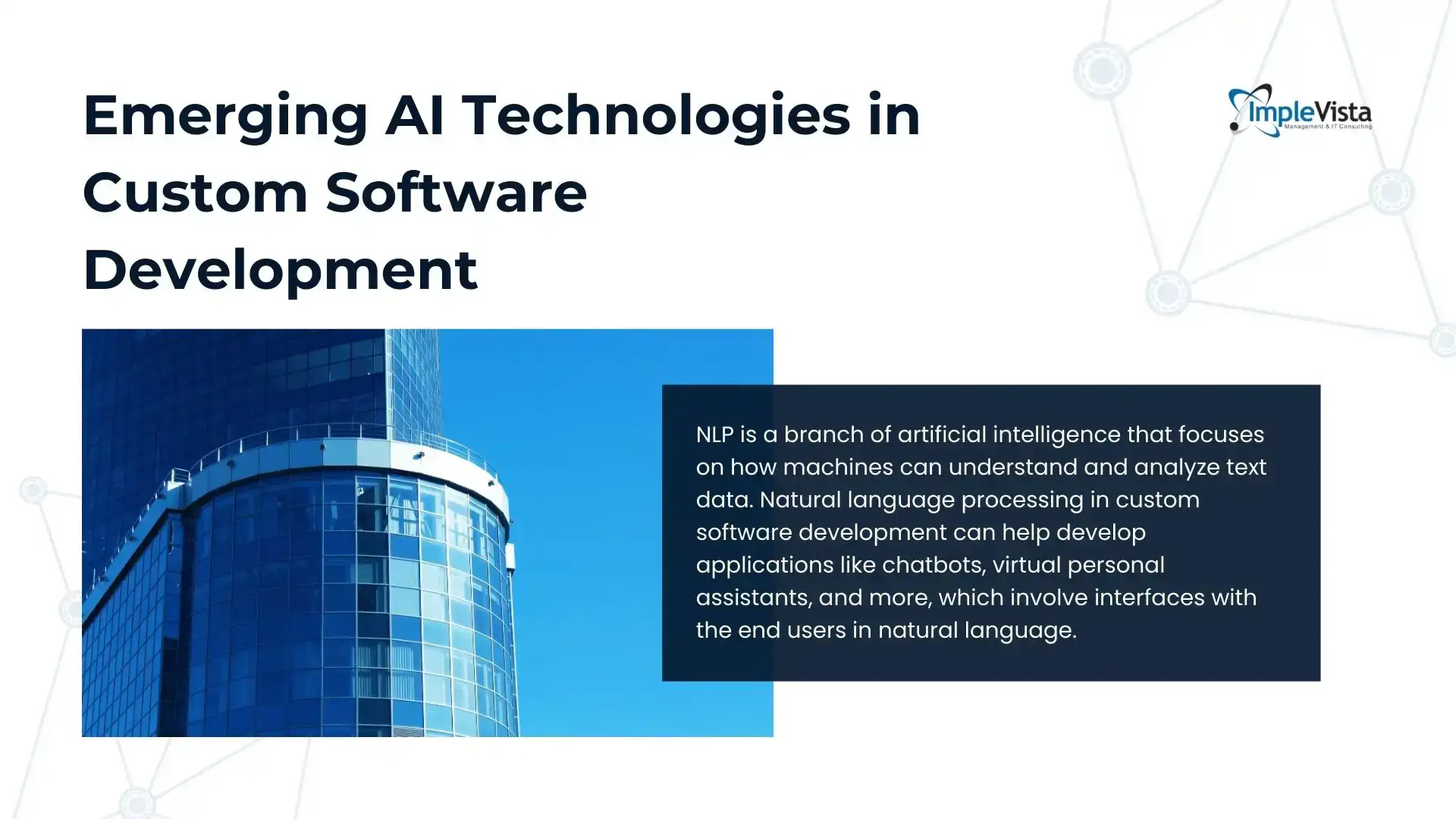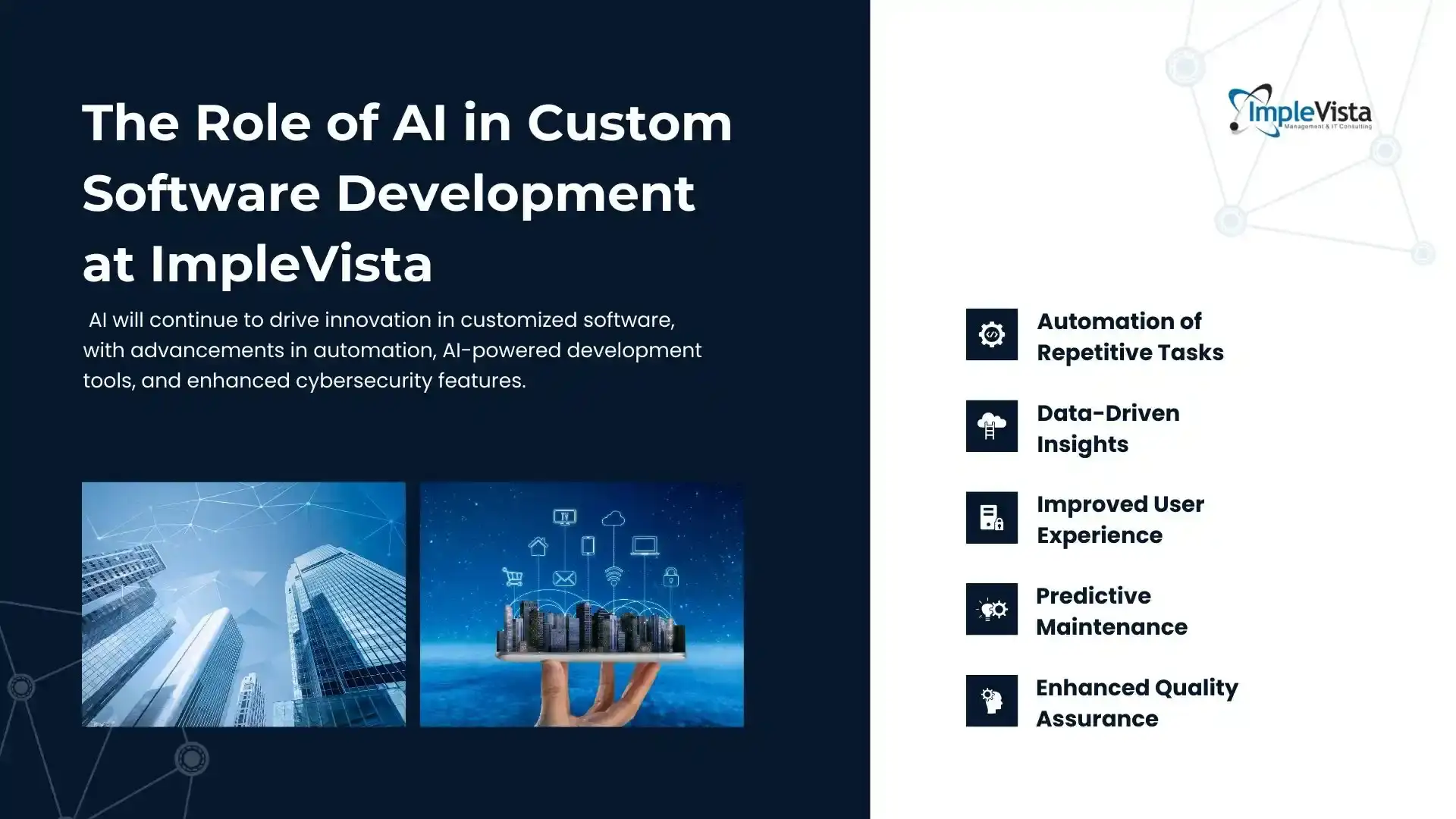Scalability is a crucial factor in custom software development, ensuring that a solution can handle increased workload and user demand over time. A well-designed software system not only meets current business needs but also accommodates future growth efficiently. Without proper scalability planning, software can become slow, inefficient, and costly to maintain. This guide will explore essential strategies to ensure scalability in custom software solution development, particularly for businesses in Bangladesh.
Ensure Scalability and Performance with Custom Software Solutions
In today’s rapidly evolving business landscape, maintaining a competitive edge is essential. One of the most effective ways to achieve this is by adopting scalable software solutions that grow alongside your business. These solutions are specifically designed to adapt to changing business needs, ensuring seamless performance and long-term efficiency. By investing in scalable software, businesses can handle increased workloads, integrate new features, and stay prepared for future growth without disruptions.
Stay Ahead of the Competition with Scalable Software Solutions
What Are Scalable Software Solutions?
Scalable software solutions are designed to grow and adapt to the changing needs of a business. Whether you’re running a small startup or a large enterprise, these solutions provide the flexibility required to handle increased workloads, data, and user demands without performance issues. Unlike traditional software that may require frequent upgrades or replacements, scalable solutions expand seamlessly, ensuring smooth business operations. They are built with future growth in mind, allowing businesses to integrate new features, manage more users, and process larger amounts of data without compromising speed or efficiency.
Why Scalable Software is Essential for Business Growth
Investing in scalable software ensures that your business remains agile and competitive in a rapidly changing market. As your customer base expands and your operations grow, scalable software can adapt to increased demand without requiring a complete system overhaul. This means fewer disruptions, reduced downtime, and lower long-term costs. With cloud-based scalable software, businesses can also enjoy on-demand resources, optimizing performance while keeping expenses manageable. By prioritizing scalability, companies can future-proof their operations, ensuring they remain adaptable in an ever-evolving digital landscape.
Key Benefits of Scalable Software Solutions
One of the main advantages of scalable software is its ability to support business expansion without the need for constant reinvestment. Businesses can efficiently manage increased traffic, data, and workloads, ensuring smooth operations. Another significant benefit is cost-effectiveness—instead of repeatedly purchasing new software, companies can scale existing solutions as needed. Moreover, scalable systems improve efficiency by streamlining workflows, automating tasks, and minimizing errors. They also contribute to a better customer experience, ensuring faster response times, reliable services, and uninterrupted performance, which enhances user satisfaction and loyalty.
How Scalable Software Solutions Improve Efficiency
Efficiency is key to business success, and scalable software plays a crucial role in automating repetitive tasks, optimizing workflows, and reducing manual errors. As businesses grow, operational complexities increase, often leading to inefficiencies that slow productivity. Scalable solutions, however, integrate seamlessly with existing systems, allowing businesses to maintain high levels of efficiency even during expansion. They also enable real-time data processing and analysis, helping businesses make data-driven decisions that improve performance and competitiveness.
Position Your Business for Long-Term Success
By leveraging scalable software solutions, businesses can stay ahead of competitors and position themselves for sustainable growth. Whether you’re in e-commerce, healthcare, finance, or any other industry, scalability ensures that your software evolves with your business needs. At Implevista, we specialize in developing custom scalable software solutions tailored to your unique requirements. Contact us today to discover how our solutions can help your business achieve long-term success.

Understanding Scalability in Custom Software Development
Scalability refers to a system’s ability to grow and adapt to increasing user demands without compromising performance. It is vital for businesses using customer engagement software and project management software to remain competitive in a dynamic market. Scalability ensures smooth user experience, optimized costs, and reduced system downtime.
A scalable software solution should have:
- Efficient Resource Management: Optimized memory, storage, and processing power.
- Seamless Performance: Ability to handle high traffic without performance degradation.
- Modular Architecture: Flexibility to add new features and functionalities without restructuring the entire system.
- Security Measures: Ensuring data protection as the system grows in complexity and user base.
How to Ensure Scalability in Custom Software Development
Ensuring scalability in custom software development is crucial for creating a system that can efficiently handle an increasing number of users, data, and features without compromising performance. Without proper scalability measures, software applications may slow down, experience downtime, or become expensive to maintain. Below are key strategies to ensure seamless scalability in software development:
1. Adopt a Modular Architecture
A modular approach to software architecture enables independent scaling of different system components, making it easier to enhance performance and accommodate future growth.
- Microservices Architecture: Dividing an application into smaller, independent services ensures that each service can scale separately based on demand. This approach improves flexibility, simplifies maintenance, and enhances fault tolerance.
- Decoupled Components: Structuring an application so that its components function independently enables developers to add, remove, or modify features without affecting the entire system. This ensures smoother upgrades and expansion.
2. Optimize Database Scalability
A well-structured database is essential for managing large amounts of data efficiently. Proper database optimization strategies help prevent slowdowns and performance bottlenecks.
- Database Partitioning and Sharding: Distributing data across multiple databases reduces the load on any single server, ensuring faster query processing and improved system performance.
- Database Replication: Creating copies of the database across multiple servers enhances redundancy, improves response time, and ensures seamless data availability.
- Scalable Database Systems: Using NoSQL databases like MongoDB and Cassandra allows for horizontal scaling, making them ideal for handling large volumes of structured and unstructured data.
3. Cloud Infrastructure
Utilize Cloud Computing: Cloud platforms such as AWS, Azure, and Google Cloud offer flexible, on-demand scalability, allowing you to expand your infrastructure without upfront hardware costs.
Enable Auto-Scaling: Configure auto-scaling features to dynamically allocate resources based on traffic fluctuations—expanding during peak times and reducing during low-demand periods.
4. Load Balancing
Distribute Traffic Efficiently: Implement load balancers to evenly distribute incoming traffic across multiple servers, preventing overload and maintaining optimal performance.
Scale Horizontally: Instead of upgrading a single server with more power (vertical scaling), consider adding multiple servers (horizontal scaling) to enhance flexibility and reliability.
5. Efficient Code Optimization
Enhance Code Efficiency: Optimize algorithms and data structures to minimize processing time and resource consumption, ensuring seamless system growth.
Leverage Asynchronous Processing: Implement asynchronous operations and event-driven architectures to improve response times and handle requests more efficiently.
6. Caching Strategies
Use In-Memory Caching: Tools like Redis and Memcached store frequently accessed data, reducing database queries and improving response speeds.
Implement Client-Side Caching: Storing static content (such as images, CSS, and scripts) on the client’s device minimizes server requests and enhances performance.
7. API Rate Limiting
Manage API Requests: Introduce rate-limiting mechanisms to prevent excessive API requests that could overload the system, especially during traffic spikes.
Utilize API Gateways: API gateways help monitor and regulate traffic, optimizing performance and enabling seamless scalability.
8. Monitoring and Performance Testing
Continuously Monitor Performance: Tools like Prometheus, Grafana, and New Relic provide real-time performance tracking, helping detect and address bottlenecks before they impact users.
Conduct Load and Stress Testing: Regularly evaluate system performance under varying loads to identify potential weaknesses and optimize scalability.
9. Containerization and Orchestration
Adopt Containerization: Technologies like Docker encapsulate application dependencies, ensuring consistency and simplifying deployment across various environments.
Orchestrate with Kubernetes: Kubernetes automates the management and scaling of containerized applications, dynamically adjusting resources based on demand.
10. Version Control and CI/CD
Implement CI/CD Pipelines: Continuous Integration and Continuous Deployment (CI/CD) practices facilitate frequent updates without disrupting operations.
Adopt Version-Controlled Scaling: Roll out updates in stages to prevent overwhelming the application or infrastructure, ensuring seamless performance during upgrades.
By designing modular software, optimizing databases, leveraging cloud solutions, and implementing strategic load-balancing and caching techniques, businesses can achieve scalable and high-performing custom software solutions.
Best Practices for Ensuring Scalability
To build a scalable software solution, businesses should implement the following best practices:
- Modular Code Structure: Writing reusable and loosely coupled code to simplify expansion and maintenance.
- Automated Testing: Using unit and integration testing to maintain stability and performance during updates.
- Version Control: Leveraging tools like GitHub or GitLab for streamlined code management and collaboration.
- DevOps Integration: Automating software development lifecycle, including CI/CD pipelines, for faster and more reliable deployments.
- Security Considerations: Implementing robust security measures like authentication, encryption, and access control to prevent vulnerabilities as the system scales.
Beyond scalability, future-proofing enhances technological flexibility. A flexible software solution allows businesses to introduce new features or modify functionalities without requiring expensive rewrites. As software designers Chris Hanson and Gerald Jay Sussman state in their book Software Design for Flexibility, “The best systems are evolvable; they can be adapted for new situations by adding code, rather than changing the existing code.”

Ensuring Scalability in Custom Software: A Guide for Manufacturers
Custom software development plays a crucial role in overcoming these hurdles by optimizing workflows, enhancing efficiency, and driving sustainable growth. However, the true value of such software lies in its scalability—the ability to adapt and expand alongside business needs.
Without a scalable solution, manufacturers may face operational inefficiencies, limited return on investment in technology, and difficulties in responding to changing market demands. Scalable software ensures that as a business grows, its digital infrastructure remains robust, flexible, and capable of supporting increasing workloads.
This article explores the significance of scalability in custom software development, outlining its benefits, common challenges, and industry best practices. Additionally, we will highlight how top-tier software solutions empower manufacturers to thrive in competitive markets and how expert development firms like Implevista Technologies can help businesses achieve long-term success through tailored, scalable digital solutions.
The Role of Scalable Custom Software in Manufacturing Growth
Custom software development offers manufacturers tailored solutions that align perfectly with their unique operational needs. Unlike off-the-shelf software, custom solutions are designed to integrate seamlessly with existing systems while adapting to industry-specific requirements. For example, a custom software development project may involve integrating IoT-enabled machinery with an Enterprise Resource Planning (ERP) system to enable real-time monitoring and predictive maintenance. By prioritizing scalability in the development process, manufacturers can ensure long-term value and adaptability as their business evolves.
Why Scalability Matters in Manufacturing Software
Scalability is not just a technical feature—it is a fundamental requirement for sustainable business growth. As manufacturing operations expand, companies face increased complexity in production processes, supply chains, and customer interactions. Scalable software solutions help mitigate these challenges by accommodating growing data volumes, expanding user bases, and adapting to evolving operational demands.
Key advantages of scalable custom software include:
- Improved Efficiency: Scalable software eliminates the need for frequent system upgrades, allowing manufacturers to focus on optimizing core operations.
- Future-Proof Technology Investments: A scalable design minimizes the cost of retrofitting or replacing outdated systems, ensuring long-term usability.
- Seamless Integration: Scalable software can integrate with emerging technologies such as AI-driven manufacturing solutions, cloud platforms, and advanced data analytics tools like Databricks Genie, keeping businesses ahead of industry trends.
Key Considerations for Building Scalable Software
Developing scalable manufacturing software requires a strategic approach, incorporating robust architectural design, advanced technology choices, and performance optimization. Here are four essential factors for ensuring scalability:
1. Modular Architecture
A modular software architecture, such as microservices, allows different components of the system to function independently. This approach enables manufacturers to add new features without disrupting existing processes. For instance, a company implementing machine learning-based predictive analytics can seamlessly integrate this module into their current ERP system without major system overhauls.
2. Cloud-First Development
Cloud computing provides unparalleled scalability, enabling manufacturers to adjust resources as needed. A cloud-based software solution ensures flexibility, cost-effectiveness, and high performance. Companies like Implevista offer cloud development services that empower manufacturers to scale efficiently while maintaining strong security and system reliability.
3. Optimized Database Performance
As manufacturing data grows, efficient database management becomes essential. Implementing techniques such as database sharding, indexing, and caching allows systems to process large datasets efficiently. For example, manufacturers leveraging Databricks Genie for advanced analytics require well-optimized databases to handle massive amounts of structured and unstructured data.
4. Performance Monitoring and Load Balancing
Continuous performance monitoring and load balancing help ensure that software remains responsive even during peak demand periods. By integrating real-time monitoring tools, businesses can dynamically allocate resources, prevent downtime, and enhance user experience.
Scalable custom software solutions empower manufacturers to optimize operations, streamline workflows, and remain competitive in a rapidly evolving industry. By focusing on modular architecture, cloud computing, database optimization, and performance monitoring, businesses can build future-proof systems that support sustainable growth. With expert solutions from Implevista Technologies, manufacturers can leverage cutting-edge custom software development to drive efficiency and innovation.

The Power of Automation in Scalable Software Development
Automation plays a crucial role in ensuring scalability in custom software solutions for manufacturers. By streamlining repetitive tasks, businesses can shift their focus from operational challenges to innovation and growth. Scalable software solutions powered by automation enhance production scheduling, supply chain management, and quality control, allowing manufacturers to maintain efficiency as they expand.
For example, integrating machine learning into custom enterprise software enables predictive analytics, helping manufacturers forecast demand, optimize resource allocation, and reduce waste. Automation ensures that as a business grows, its software seamlessly adapts to increasing complexity without requiring constant manual adjustments. With Implevista Technologies’ enterprise application integration services, manufacturers can automate workflows across multiple systems, ensuring consistency, efficiency, and scalability.
Scalability in Action: Real-World Applications
Manufacturers that adopt scalable software solutions often experience significant operational improvements. Here are two real-world scenarios that highlight the impact of scalable software development:
- Centralized Inventory Management: A mid-sized manufacturer struggling with inventory management across multiple locations can benefit from a customized software solution integrated with IoT sensors. This system enables real-time tracking, automated stock updates, and predictive restocking recommendations. As the business expands, the software scales effortlessly, accommodating new warehouses, increased data flow, and AI-driven analytics for optimized inventory control.
- Mobile-Based Production Monitoring: A manufacturing company looking to enhance remote monitoring and control of production lines can leverage custom mobile development. A scalable mobile application can support an increasing number of users, integrate seamlessly with new machinery, and incorporate advanced features such as AR-based troubleshooting to improve operational efficiency as the company grows.
Challenges in Achieving Scalability
While custom software offers numerous benefits, ensuring scalability comes with its own set of challenges. Here are some common obstacles manufacturers may face:
- 🔹 Initial Costs – Developing scalable custom software requires a higher upfront investment compared to off-the-shelf solutions. However, the long-term efficiency, adaptability, and ROI far outweigh these initial costs. Partnering with an experienced custom software development company like Implevista ensures cost-effective solutions tailored to business needs.
- 🔹 Complexity – Custom software is designed to meet specific operational needs, which can sometimes introduce technical complexities. Proper maintenance and skilled IT support are essential to manage these systems effectively.
- 🔹 Integration Challenges – New software must seamlessly integrate with existing systems to ensure smooth operations. A strategic approach to system compatibility and data migration is crucial for successful implementation.
- 🔹 Legacy Systems – Many manufacturers rely on outdated systems that are not built for scalability. Transitioning to modern solutions requires careful planning and expert integration services to ensure minimal disruption.
- 🔹 Skill Gaps – Scalable software development requires expertise in cloud computing, machine learning, and advanced analytics. Partnering with a trusted software development company provides access to skilled professionals and the latest technologies, ensuring a smooth scalability journey.
By addressing these challenges proactively, businesses can unlock the full potential of scalable custom software, driving long-term growth and innovation. 🚀
Scalable Software and Data-Driven Decision-Making
As manufacturing businesses expand, the volume of operational data grows exponentially. Scalable software solutions are essential for harnessing this data to make informed, real-time decisions that enhance efficiency and drive innovation. Advanced platforms, such as cloud-based analytics solutions, enable manufacturers to analyze large datasets, extract actionable insights, and optimize workflows.
For example, custom software integrated with real-time analytics tools can provide dashboards that track key metrics like production efficiency, inventory levels, and customer orders. Scalable systems ensure that as data sources expand, the software can handle increased loads without compromising performance. Implevista’s expertise ensures manufacturers have the right infrastructure to manage, process, and analyze data effectively.
Emerging Technologies Driving Scalability
The rapid adoption of artificial intelligence (AI), machine learning (ML), and cloud computing has transformed scalability in manufacturing. AI-powered solutions enable predictive maintenance, helping businesses reduce downtime and optimize equipment performance. Cloud platforms facilitate scalable data analytics, empowering manufacturers to gain valuable insights from massive datasets.
Implevista specializes in AI-driven manufacturing solutions, integrating advanced AI algorithms, machine learning models, and cloud-based platforms to deliver scalable, future-ready solutions that enhance productivity and competitiveness.
Measuring the Impact of Scalable Software
The success of scalable software solutions is reflected in key performance indicators (KPIs) such as:
✔ Operational Efficiency – Reduced downtime, optimized workflows, and improved production rates.
✔ Cost Savings – Lower maintenance costs and minimized resource wastage.
✔ Customer Satisfaction – Enhanced service delivery through reliable and efficient systems.
Manufacturers implementing custom, scalable software report significant improvements in these areas, showcasing the tangible benefits of investing in adaptable digital solutions.
Leveraging Technology for Scalability
Incorporating AI and ML into custom software enhances scalability by enabling manufacturers to automate processes, analyze data efficiently, and make real-time decisions.
🔹 Predictive Analytics – AI-driven demand forecasting for smarter inventory management.
🔹 Automated Quality Control – Machine learning models detect defects in real time during production.
Implevista provides comprehensive software development services, seamlessly integrating AI and ML to keep manufacturing operations competitive and efficient.
The Importance of Digital Transformation
Digital transformation is essential for manufacturers aiming for scalability. Beyond improving operational efficiency, digital tools enhance data management, customer engagement, and business agility. A successful digital transformation strategy involves:
📌 Assessing current technology capabilities
📌 Identifying areas for improvement
📌 Implementing cutting-edge digital solutions
Implevista offers tailored digital transformation solutions, guiding manufacturers through this critical transition with minimal disruption.
Ensuring scalability in custom software is not just a technical requirement but a strategic necessity for growing manufacturers. By prioritizing scalability, automation, and emerging technologies, businesses can adapt to evolving demands and maintain a competitive edge.
With Implevista’s expertise in custom software development, AI-powered solutions, and enterprise integration, manufacturers can build scalable, future-proof systems designed for sustained success. 🚀

Drive Business Growth with Custom Software Development
The Importance of Custom Software Development
Custom software development provides businesses with tailored solutions that align with their specific needs, offering a distinct advantage over generic, off-the-shelf software. Every business has unique challenges and requirements that cannot always be addressed by pre-built software. Custom software is designed to integrate seamlessly with existing workflows, enhancing efficiency and productivity while reducing operational bottlenecks. By investing in a solution built specifically for your business, you ensure a higher level of performance, scalability, and security.
Key Benefits of Custom Software Development
Custom software development comes with several advantages that can significantly impact a business’s growth and efficiency. Personalized solutions ensure that businesses receive exactly what they need, eliminating unnecessary features that slow down operations. Scalability is another key benefit—custom software can grow alongside your business, adapting to new challenges and increased workloads without requiring costly upgrades. Additionally, custom solutions improve operational efficiency by automating repetitive tasks and reducing human errors, allowing employees to focus on more strategic initiatives. Enhanced security is another major advantage, as custom software can be built with strong encryption and advanced security features, protecting sensitive business and customer data.
How Custom Software Enhances Business Processes
Optimized business processes are critical for efficiency and growth. Custom software enables companies to streamline workflows, integrate different systems, and eliminate inefficiencies. For example, businesses that rely on manual data entry or disconnected systems often face delays and errors. Custom software development allows for the automation of key tasks, improving speed and accuracy. Additionally, it enables real-time data tracking and reporting, helping decision-makers make informed choices based on actionable insights. With customized solutions, businesses can tailor their software to fit their specific operational needs, resulting in increased efficiency and reduced costs.
Improving Customer Experience with Custom Software
Customer experience is a major factor in business success. Custom software allows businesses to create personalized user experiences that enhance customer satisfaction and loyalty. From customized customer relationship management (CRM) systems to seamless e-commerce platforms, businesses can develop solutions that cater to their audience’s needs. Faster response times, intuitive interfaces, and personalized interactions ensure that customers receive top-tier service, leading to increased engagement and repeat business. In today’s competitive market, businesses that prioritize customer experience through custom software solutions gain a significant edge over their competitors.
Custom Software: A Strategic Investment for Long-Term Growth
While the upfront investment for custom software development may be higher than purchasing off-the-shelf solutions, it delivers long-term cost savings by eliminating the need for constant updates and replacements. Businesses that invest in custom software future-proof their operations, ensuring they can adapt to evolving market conditions without technological limitations. Additionally, industry studies predict that custom software development will continue to grow, with companies increasingly shifting toward personalized solutions to remain competitive.
Empower Your Business with High-Performance Custom Software
Why Businesses Need Custom Software
In today’s fast-paced digital landscape, businesses need high-performance custom software to maintain a competitive edge. Off-the-shelf solutions often lack the flexibility and scalability required to meet unique business demands. Custom software provides tailored solutions that help businesses optimize their operations, improve security, and streamline processes. Whether you need an advanced data management system, a custom e-commerce platform, or a specialized enterprise application, custom software offers unmatched benefits that drive efficiency and growth.
The Role of Custom Software in Business Success
Custom software development is a game-changer for businesses looking to enhance efficiency, improve security, and stay ahead of competitors. It enables organizations to automate complex processes, integrate various platforms, and customize user experiences to match customer expectations. By leveraging the latest technologies, businesses can create scalable, high-performance software that grows with their needs, ensuring long-term success.
Key Takeaways for Businesses Considering Custom Software Development
- Tailored to Your Business Needs – Custom solutions ensure seamless integration with existing workflows.
- Enhanced Security – Built-in security features protect sensitive data from cyber threats.
- Scalability and Flexibility – Easily adapt to changing business requirements.
- Competitive Advantage – Stand out from competitors with unique functionalities.
- Long-Term Cost Savings – Avoid unnecessary upgrades and licensing fees.

How to Build Scalable, Future-Proof Custom Software
When developing custom software, whether it’s an ERP, CRM, BPM, or any other system, ensuring that your solution is built for the future is crucial. A future-proof, scalable software application adapts seamlessly as your business grows, maximizing efficiency and return on investment (ROI). By designing software with long-term flexibility, you can avoid costly overhauls and keep your system relevant for years to come.
Why Future-Proofing Your Software is Essential
Future-proofing your software during development ensures scalability, a critical factor in extending the lifespan of a digital solution. A well-structured application should efficiently handle increasing data, transactions, and user volumes without sacrificing performance or user experience. Scalable software minimizes operational disruptions, reducing the risk of system failures and downtime as your company expands.
Beyond scalability, future-proofing enhances technological flexibility. A flexible software solution allows businesses to introduce new features or modify functionalities without requiring expensive rewrites. As software designers Chris Hanson and Gerald Jay Sussman state in their book Software Design for Flexibility, “The best systems are evolvable; they can be adapted for new situations by adding code, rather than changing the existing code.”
Steps to Ensure Your Software Stands the Test of Time
Future-proofing a software solution requires strategic planning and implementation. Here are some essential steps to achieve longevity and adaptability in your custom software.
Adopt a Modular Architecture Design
The architecture of your software significantly impacts its scalability and flexibility. A modular approach—where software is built as independent components (modules)—ensures ease of updates and improvements. Microservices architecture is a prime example of this method, where each service performs a specific function and operates independently. This structure allows businesses to introduce new features or update individual modules without affecting the entire system, making scaling and modifications more efficient.
Leverage Cloud Hosting for Greater Flexibility
Choosing between on-premises and cloud hosting is a crucial decision when designing scalable software. While on-premises hosting provides direct control over data, cloud deployment offers superior flexibility and scalability. Cloud-hosted solutions operate across multiple servers rather than relying on a single physical unit, enabling businesses to scale storage and computing resources as needed. Additionally, distributing workloads across multiple cloud servers enhances software performance and ensures system stability, even as user demand fluctuates.
Maintain High Code Quality Standards
Poorly written code can severely limit a software’s scalability and maintainability. Complex, inefficient code makes future upgrades time-consuming and costly due to the need for extensive refactoring. To prevent this, developers should follow established coding best practices, ensuring a standardized and easily understandable codebase. Techniques such as minimizing code duplication and optimizing loops or functions help maintain clean, efficient code. A well-structured codebase simplifies future modifications and enhances software longevity.
Conduct Regular Scalability Testing
Scalability testing evaluates a software’s ability to handle increased workloads while maintaining optimal performance. Tools like LoadRunner and Gatling allow engineers to test how well the system supports growing user numbers, data loads, and transaction volumes. By conducting scalability tests before launch, businesses can identify and resolve performance issues early, preventing costly fixes down the road. Regular testing ensures that the software remains efficient and responsive, even as business demands evolve.
Final Thoughts
Building scalable, future-proof software requires a proactive approach that prioritizes modular design, cloud-based deployment, high code quality, and rigorous testing. By implementing these strategies, businesses can create software that evolves alongside their needs, reducing long-term maintenance costs and maximizing ROI. Investing in future-proof software development today ensures that your digital solution remains relevant, efficient, and resilient in the years to come.
Why Choose Implevista?
Implevista is a leading provider of scalable custom software development, delivering end-to-end solutions designed to meet the unique needs of manufacturers. From initial consultation and system design to full-scale implementation and ongoing support, we help businesses stay ahead in an increasingly competitive market.
With expertise in AI, cloud computing, enterprise integrations, and data-driven solutions, Implevista empowers manufacturers to achieve higher efficiency, automation, and innovation. Our software solutions are built with scalability at their core, ensuring seamless growth and adaptability as business needs evolve.
Ready to future-proof your manufacturing operations with cutting-edge software solutions? Partner with Implevista and unlock new possibilities today! 🚀

FAQs About scalability important in custom software development
1. Why is scalability important in custom software development?
Scalability ensures that software can handle growth efficiently, preventing performance issues and costly system overhauls.
2. How does cloud computing improve scalability?
Cloud computing provides auto-scaling capabilities, flexible storage options, and cost-effective solutions compared to traditional infrastructure.
3. What is the difference between horizontal and vertical scaling?
Horizontal scaling adds more servers to distribute load, while vertical scaling upgrades existing server capabilities.
4. How can API-first development contribute to scalability?
API-first development ensures seamless integration with other systems, making it easier to expand functionality over time.
5. How does load balancing enhance scalability?
Load balancing distributes incoming traffic across multiple servers, preventing overloading and ensuring consistent performance.
Ensuring scalability in custom software development requires strategic planning and implementation. By leveraging microservices, optimizing databases, utilizing cloud computing, and following agile methodologies, businesses can develop robust, scalable solutions that grow alongside their needs.
For expert custom software solution development, partner with Implevista—your trusted software development partner in Bangladesh.




